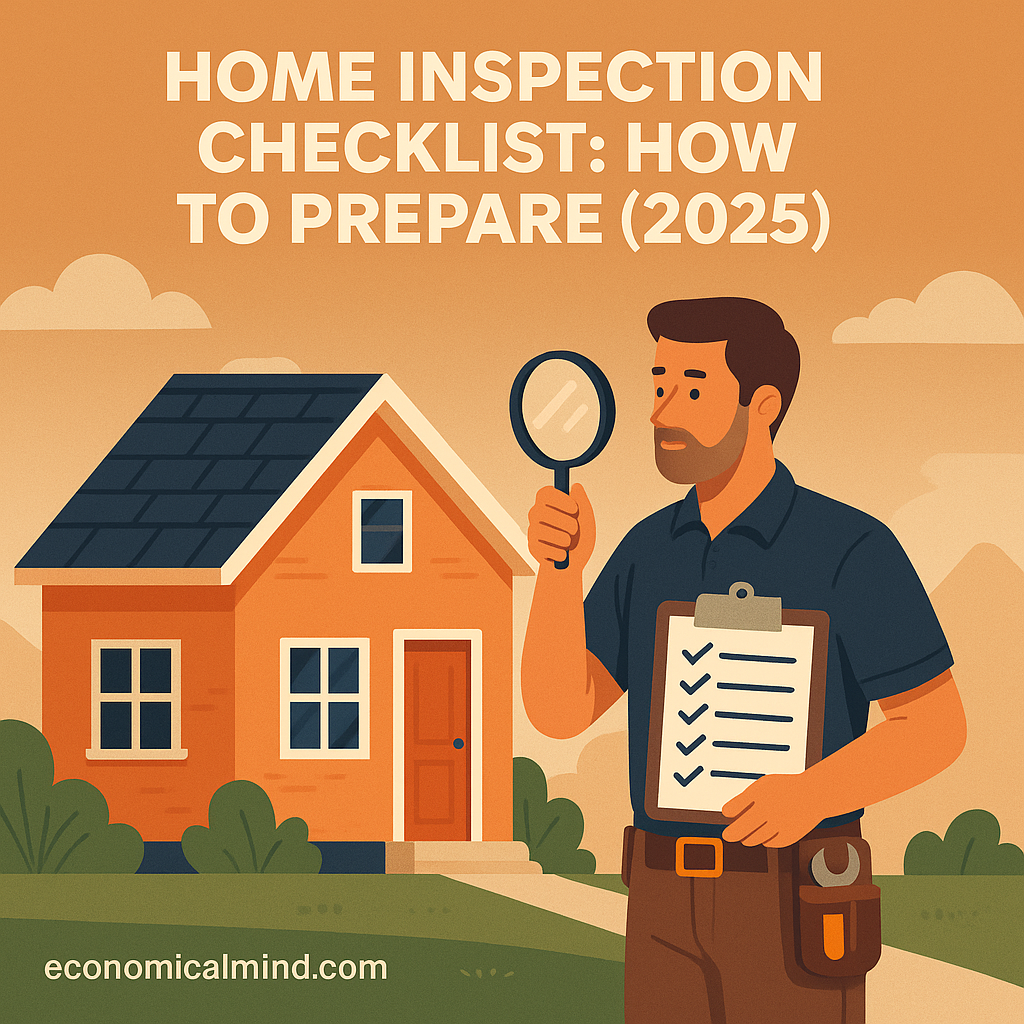
A home inspection is one of the most critical steps in the buying process — the moment where excitement meets reality. In 2025’s housing market, where every detail matters, being prepared for your home inspection can save you thousands of dollars and hours of stress. Whether you’re a first-time buyer or seasoned homeowner, knowing what to expect helps ensure your investment is sound.
What Is a Home Inspection?
A home inspection is a professional assessment of a property’s condition, safety, and structural integrity. A certified inspector examines the home’s systems, from the foundation to the roof, to identify potential problems before you finalize your purchase.
It’s not about passing or failing — it’s about understanding what you’re buying and how much future maintenance it may need.
Why Preparation Matters
A home inspection isn’t just for the inspector — it’s for you. Coming prepared allows you to:
- Ask the right questions
- Understand which issues are major vs. minor
- Negotiate repairs or price adjustments
- Avoid unexpected expenses after closing
In 2025’s competitive housing market, a thorough inspection can also give buyers more confidence to move forward — or walk away with peace of mind.
Pre-Inspection Checklist for Buyers
Here’s how to get ready before inspection day:
- Hire a Licensed Inspector
Choose a professional certified by ASHI (American Society of Home Inspectors) or InterNACHI. Check reviews and sample reports before hiring. - Review the Seller’s Disclosure
Look for known issues like roof age, water damage, or electrical updates. This helps you flag specific areas to check. - Bring a Notebook and Questions
You’ll want to take notes and clarify terms during the walkthrough. - Check Accessibility
Make sure the inspector can reach the attic, basement, and electrical panels — ask the seller to clear paths ahead of time. - Be Present
Attend the inspection if possible. You’ll gain valuable insight from seeing issues firsthand instead of just reading a report later.
What Inspectors Examine
A standard home inspection covers:
- Structural Components – foundation, walls, roof, ceilings, floors
- Roofing – shingles, flashing, gutters, leaks
- Plumbing – pipes, water pressure, drainage, water heater
- Electrical – wiring, panels, GFCI outlets, circuit safety
- HVAC Systems – furnace, AC unit, air filters, ductwork
- Interior & Exterior – windows, insulation, doors, stairs
- Appliances – basic functionality of major built-ins
- Safety Concerns – smoke detectors, carbon monoxide alarms, handrails
You’ll receive a detailed report with photos, condition summaries, and recommended repairs.
Common Issues Found in 2025 Inspections
- Aging HVAC units or outdated wiring
- Roof leaks from extreme weather cycles
- Poor insulation and energy inefficiency
- Minor plumbing leaks or water pressure problems
- Drainage or foundation cracks from shifting soil
Even “perfect-looking” homes can hide problems — which is why skipping an inspection is never worth it.
How to Use the Results
Once you have the report:
- Prioritize major repairs – structural or safety issues first.
- Negotiate with the seller – request repairs or price credits.
- Plan future maintenance – not all issues require immediate fixes.
- Consult professionals – for big-ticket repairs, get quotes from specialists.
If you’re unsure about the findings, ask your inspector for clarification before closing.
Tips for Sellers Preparing for an Inspection
If you’re the seller, a little preparation goes a long way:
- Fix obvious issues like leaky faucets or burned-out bulbs.
- Replace dirty air filters.
- Clear access to utility areas.
- Gather appliance manuals and receipts for upgrades.
- Deep clean the home — presentation matters.
A clean, well-maintained home signals to buyers that it’s been cared for.
Final Thoughts
A home inspection isn’t just a formality — it’s a financial safeguard. In 2025, where properties move fast and costs are high, preparation is key. The more organized and informed you are, the smoother your purchase (or sale) will go.
Remember: inspections don’t kill deals — surprises do. The goal is to walk into your new home knowing exactly what you’re getting.
